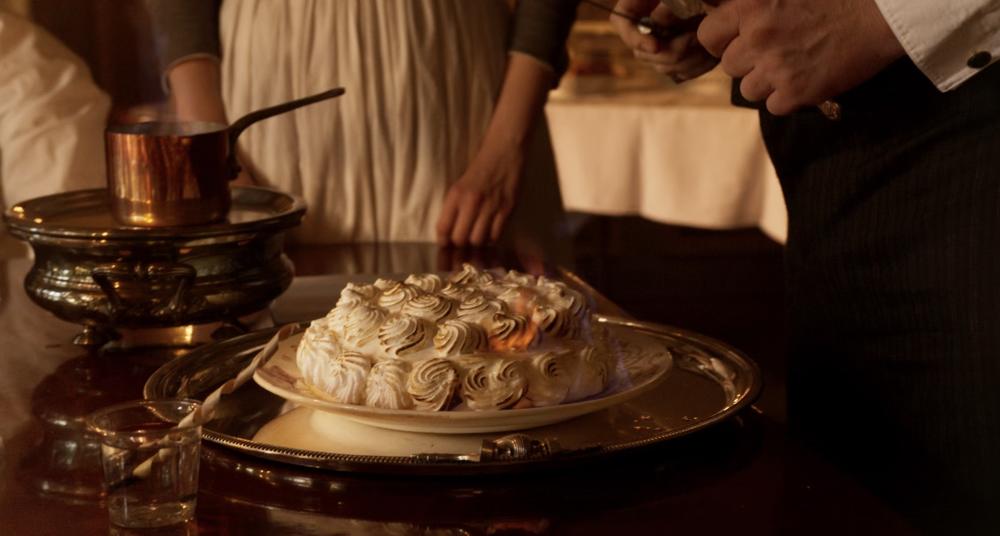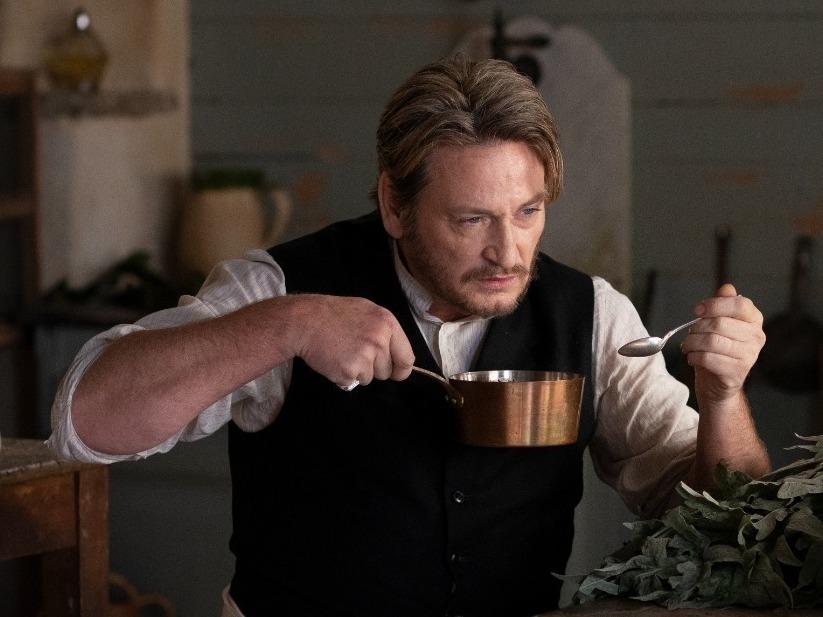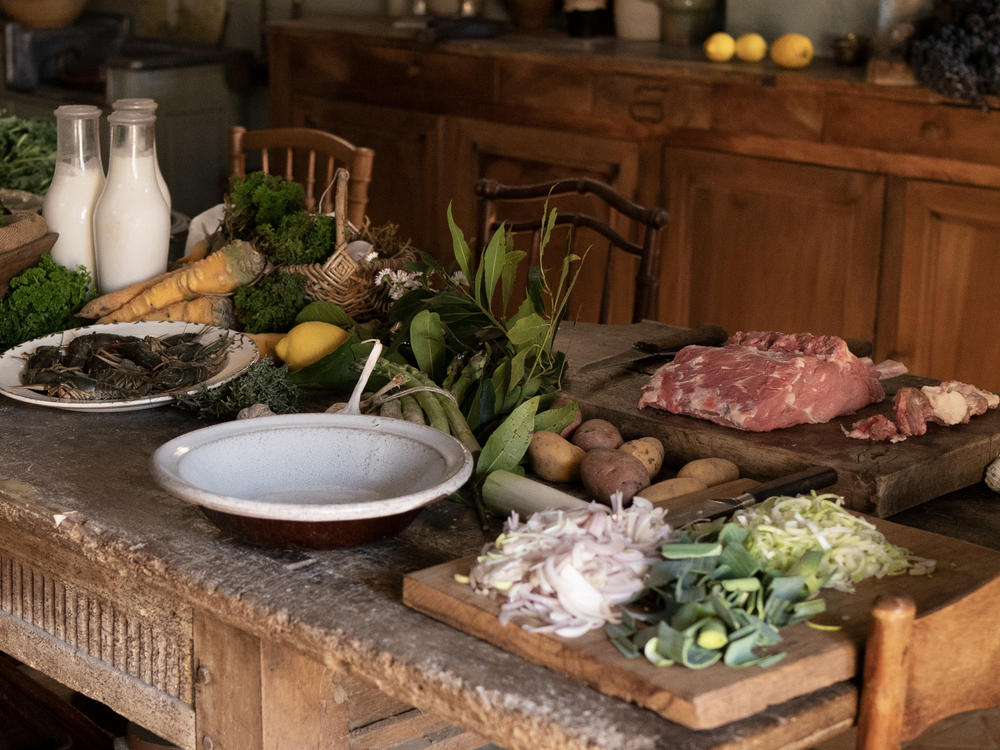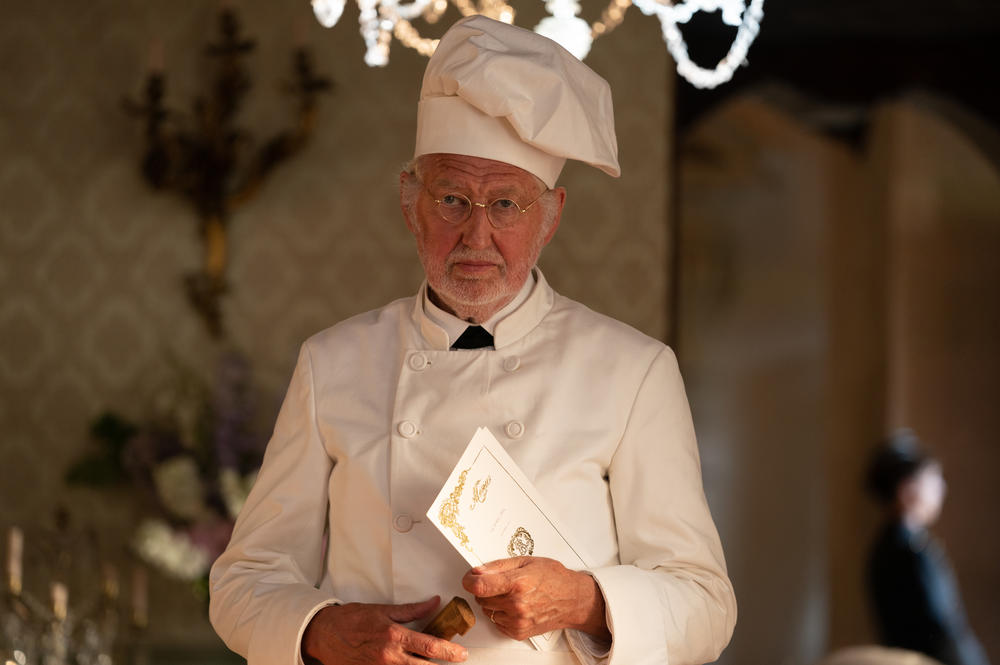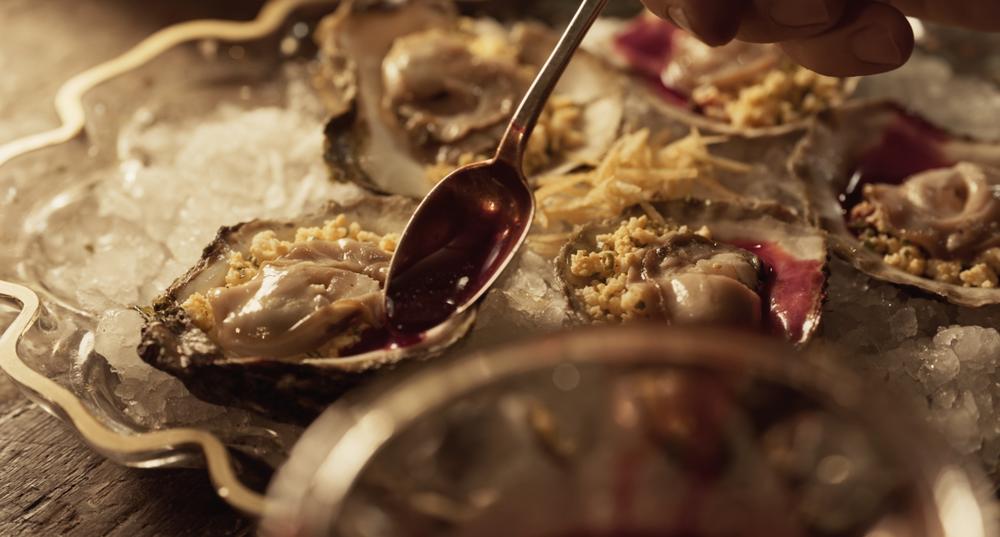Section Branding
Header Content
The 'food' you see on-screen often isn't real food. Not so, in 'The Taste of Things'
Primary Content
Plenty of critics have warned: don't see the new French movie The Taste of Things on an empty stomach. Juliette Binoche plays a longtime personal cook to a man who's a gourmand. They share a passion for food – and for each other — but she refuses to marry him. Filled with gorgeous meals, the film celebrates food, and all the work and love that goes into making it.
When you see a delicious meal in a movie or an ad, chances are, it's inedible. Food stylists have been known to substitute glue for milk, shaving foam for whipped cream, and coating meat with motor oil so it glistens.
All that was a big 'Non' for Vietnamese French director Tran Anh Hung.
He says he wanted "everything" in The Taste of Things "to be real," from the raw ingredients to the menu to the way the cooks move in the kitchen.
Rather than go for "beauty shots," Tran says he prefers "to see men and women at work doing their craft in the kitchen. And when this feeling is right, then everything will look beautiful. Not beautiful like a picture. It's beautiful like something that is real."
Easier said than done. Real food can't always handle multiple takes. Plus Tran needed to show dishes at different stages of preparation. So he needed a lot of everything. For the classic French stew pot-au-feu "we needed 40 kilos of meat for the shooting."
That's almost 90 pounds.
He also had to find vegetables that looked like they were harvested in the 19th century. "They are not as beautiful as today," he says, "They are not straight, you know, and they have a lot of spots on the skin."
'Crazy sensuality'
One of the must stunning creations in The Taste of Things is a seafood vol-au-vent, a large pastry shell filled with a thick sauce of crayfish and vegetables. The image of it being sliced for the guests is "absolute beauty" and "crazy sensuality," says three-star chef Pierre Gagnaire who consulted on the film.
After doing extensive research into the the history of French cuisine and working with a historian, Tran enlisted Gagnaire to make sure the menu he'd come up with worked in real life.
"He found that some recipes are not good. So he changed it for me," Tran remembers.
Gagnaire also cooked for Tran for five days so the director could study his movements in preparation for filming. Tran says watching Gagnaire move around the kitchen taught him that "simplicity is important and you don't need to have the perfect gesture for this or that. You need only to, you know, to be very free ... and improvise."
Gagnaire says the movie feels like a gift: "It's an homage to my technique, to my creativity," he says. The renowned chef agreed to take a small part in the film, the Prince of Eurasia's culinary officier de bouche.
'When I say cut, they always keep on eating'
Had the cuisine in the movie been doctored by a food stylist, it likely wouldn't have been edible. Tran Anh Hung says The Taste of Things crew took home doggie bags for dinner and the actors, "When I say cut, they always keep on eating."
It got to the point where they needed to shoot some scenes "unbuttoned" he laughs, "because there was no more room for the costume to enlarge them."
The Taste of Things does not have much dialogue. The action — and the intimacy — is in the kitchen. Binoche's character is quiet and focused. She's less interested in romance than she is in a creative, culinary partnership.
Gagnaire says he relates. He started working in kitchens as a teenager and he didn't like it. He was shy and reserved. But when he realized he had a special talent for the profession, it became his way to socialize.
"By feeding people and making them happy," he says, "cooking helped me connect with society. And develop real relationships."
The Taste of Things is the opposite of a big, super hero action movie. Gagnaire believes people need that right now.
"We're bombarded with vulgarity and brutality," he says, "When you leave this film, you feel calm ... because instead of violence, there's tenderness."
For Tran, the pleasures of a good meal are essential. "In life we have two sources of sensuality. It's love and food," he says.
The Taste of Things brings those two sources together in the kitchen.
This story was edited for broadcast and digital by Rose Friedman. The web story was produced by Beth Novey.

